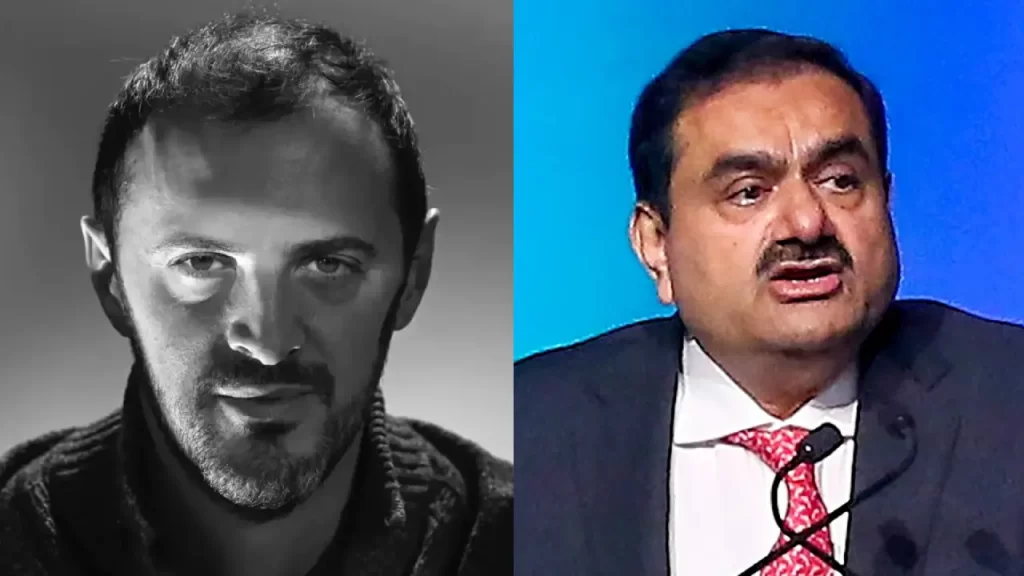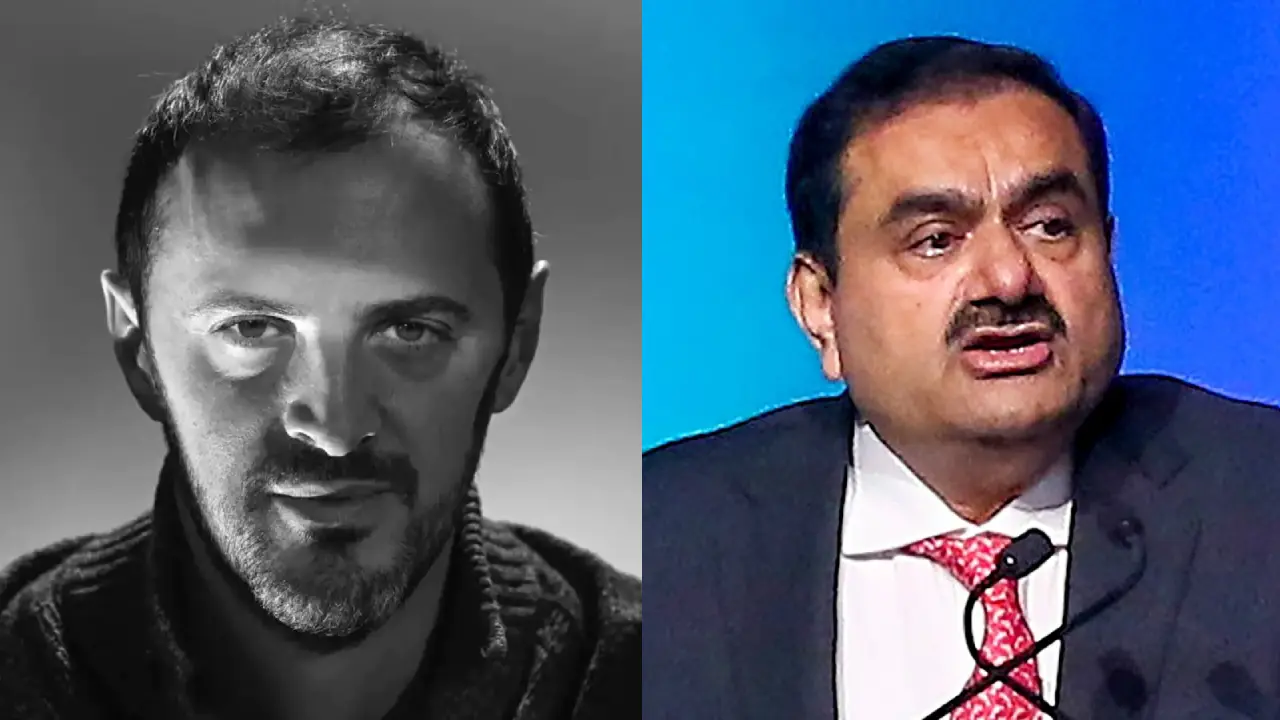In a surprising turn of events, Nate Anderson, the founder of Hindenburg Research, has announced the closure of his influential firm, a major player in the world of financial investigations and short-selling.
Hindenburg Research, established in 2017, quickly gained notoriety for its bold investigative reports, particularly in uncovering financial discrepancies and ethical violations within major companies.
Its most high-profile targets have included the electric vehicle manufacturer Nikola and the Adani Group, both of which were significantly impacted by the firm’s exposure of questionable practices.
Anderson’s decision to close the firm marks a pivotal moment in the financial and investigative space. Hindenburg Research became synonymous with the practice of short-selling, where investors bet against a company’s stock based on the belief that the stock price will decline due to underlying issues.
With a reputation for meticulous research and a willingness to take on some of the most prominent companies in the world, Hindenburg carved out a space for itself as a leading voice in corporate accountability.
However, Anderson’s announcement of closure has raised questions about the future of short-selling firms, the toll of financial investigations, and the broader implications of Hindenburg’s departure from the field.
Read also:
- Game Changer Box Office Day 5: Crosses ₹100 Cr with Festive Boost!
- Honda CBR650R 2025: Stunning Sportbike Set to Launch in India!
- Hero Passion Pro: 60 kmpl Mileage, Available at Just ₹25,000
The Rise of Hindenburg Research

Hindenburg Research was founded with a singular mission: to expose financial fraud and corporate malfeasance through investigative research. Its first major breakthrough came with the investigation into Nikola, the electric vehicle startup that at the time was hailed as the next Tesla.
In September 2020, Hindenburg released a damning report accusing Nikola’s founder, Trevor Milton, of fraud, which ultimately led to a significant drop in the company’s stock price and increased scrutiny from regulators.
The report alleged that Nikola misled investors about the capabilities of its technology and its business prospects, drawing attention to the firm’s lack of transparency and inflated claims.
This was only the beginning for Anderson and his team at Hindenburg. The firm’s willingness to challenge the status quo made it a target for both praise and criticism. Over the years, Hindenburg continued to investigate and expose other companies, including the Adani Group, an Indian multinational conglomerate. In early 2023, the firm released a report accusing the Adani Group of stock manipulation and accounting fraud.
The report caused a massive drop in the stock price of Adani companies, sparking a wider discussion about corporate governance and financial regulations in India. Hindenburg’s report also led to investigations by Indian regulators and international media scrutiny.
Hindenburg’s ability to uncover hidden financial risks and ethical lapses in high-profile companies made it a formidable force in the world of short-selling and financial journalism.
The firm’s approach, which combined deep research with a willingness to take risks, earned it both admiration and resentment from various corners of the corporate world.
While it was hailed by some as a champion of transparency, others viewed it as an opportunistic firm looking to profit from the misfortune of others.
Read also:
- The Truth About Online Earning: My Real-Life Experience Trying Popular Methods
- Masroor Alam: From $1 to $2,500 – A Village Blogger’s Rise to Success
- Earn $185/Day with ChatGPT for FREE: Make Money Online in 2025
The Decision to Shut Down
Nate Anderson’s announcement of the closure of Hindenburg Research has taken the financial community by surprise. In a statement, Anderson cited the personal toll that the high-pressure world of short-selling and corporate investigations had taken on him and his team.
The nature of the work, which often involves intense scrutiny, legal battles, and the constant risk of backlash from powerful corporations, has proven to be mentally and emotionally draining.
While Anderson did not provide specific details about his reasons for closing Hindenburg, he emphasized that his decision was motivated by the desire to prioritize his personal well-being.
In a statement, he said, “The emotional and psychological costs of running Hindenburg have taken their toll, and it’s time for me to step away and focus on other aspects of my life.”
The statement also mentioned that the firm would continue to honor its commitments and that it would gradually share its investigative methodologies with the public over the next six months.
The closure of Hindenburg Research raises significant questions about the future of short-selling firms and financial investigative journalism.
Short sellers and investigative firms play an essential role in holding companies accountable for their actions, and many argue that they provide a necessary counterbalance to corporate power.
However, the high-stakes nature of this work often comes with significant personal and professional risks.
Anderson’s decision to step away from this work highlights the mental and emotional challenges faced by individuals in this line of work and raises broader questions about the sustainability of such careers.
The Impact of Hindenburg’s Closure
The closure of Hindenburg Research marks the end of an era for short-sellers and investigative firms. In the years since its founding, Hindenburg has become one of the most well-known and influential players in the world of financial investigations.
Its reports have caused massive market fluctuations and have forced companies to confront uncomfortable truths about their operations.
In many ways, Hindenburg was seen as a trailblazer, pushing the boundaries of financial research and holding powerful corporations accountable for their actions.
The firm’s closure leaves a significant void in the industry. While there are other short-selling firms and investigative entities that continue to operate, none have garnered the same level of attention or influence as Hindenburg.
The loss of such a prominent player in the field could signal a shift in the dynamics of corporate accountability and financial transparency.
Without firms like Hindenburg, the pressure on companies to maintain high ethical standards may decrease, and the ability to expose financial fraud and unethical practices could become more difficult.
Moreover, Hindenburg’s closure also raises questions about the future of short-selling as an investment strategy. Short-sellers have long been criticized for profiting from the decline of companies, and their work often involves a combination of financial risk and social responsibility.
However, without firms like Hindenburg providing detailed reports and shedding light on financial misconduct, the practice of short-selling may become less impactful and more difficult to justify.
The Role of Short Sellers in Corporate Accountability
Short sellers like Nate Anderson play a crucial role in ensuring that companies are held accountable for their actions.
By betting against companies that they believe are overvalued or engaging in fraudulent practices, short-sellers bring attention to issues that might otherwise go unnoticed.
This type of market activity helps prevent the formation of corporate bubbles and exposes risks that could harm investors and the economy as a whole.
While short-selling is often viewed with skepticism, especially in the case of high-profile reports like those from Hindenburg, the practice can serve as a powerful tool for transparency.
Short-sellers conduct thorough research, uncovering details that may not be readily available to the public or investors. Their work can lead to regulatory investigations, changes in corporate governance, and, in some cases, legal action.
Hindenburg’s investigative reports have often resulted in substantial drops in stock prices, bringing greater attention to issues such as inflated claims, misleading financial statements, and unethical business practices. In many ways, short-sellers act as watchdogs, ensuring that the market operates fairly and transparently.
The Future of Financial Investigations
As Hindenburg closes its doors, the future of financial investigations is uncertain. The firm’s closure highlights the challenges faced by individuals in this field, where the stakes are high, and the risks can be significant. While there are other firms that continue to operate, they may not have the same level of influence or impact as Hindenburg did.
In the coming months, it will be interesting to see if Anderson continues to contribute to the field in some capacity or if he decides to pursue a different path. Whatever his next steps may be, the closure of Hindenburg Research marks the end of a significant chapter in the world of corporate accountability and financial investigations.
Conclusion
Nate Anderson’s decision to close Hindenburg Research is a reminder of the personal toll that high-stakes financial investigations can take on those involved.
Hindenburg’s role in exposing financial misconduct and holding powerful companies accountable has been a critical part of the broader conversation around corporate governance and transparency.
With the firm’s closure, the financial world must grapple with the loss of a key player in the space. As we look to the future, the industry will need to find new ways to ensure that corporate accountability remains at the forefront of the global business landscape.
Anderson’s departure may signal a shift in the world of short-selling and investigative research, but it also serves as a reminder of the importance of transparency, accountability, and ethical conduct in business. The work of Hindenburg Research will undoubtedly leave a lasting legacy, and its closure will be felt for years to come.
You can read thier whole report here

